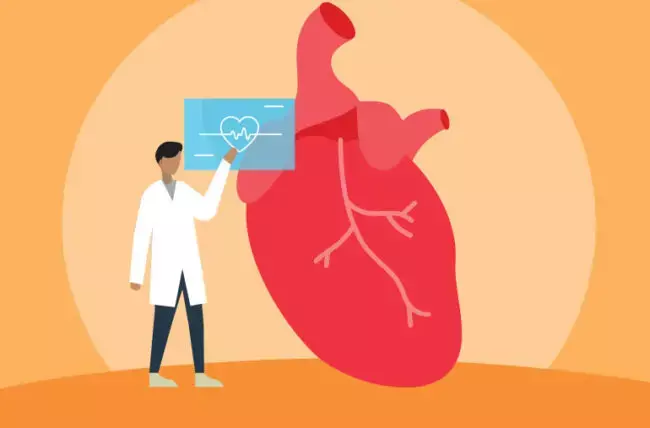- Home
- Medical news & Guidelines
- Anesthesiology
- Cardiology and CTVS
- Critical Care
- Dentistry
- Dermatology
- Diabetes and Endocrinology
- ENT
- Gastroenterology
- Medicine
- Nephrology
- Neurology
- Obstretics-Gynaecology
- Oncology
- Ophthalmology
- Orthopaedics
- Pediatrics-Neonatology
- Psychiatry
- Pulmonology
- Radiology
- Surgery
- Urology
- Laboratory Medicine
- Diet
- Nursing
- Paramedical
- Physiotherapy
- Health news
- Fact Check
- Bone Health Fact Check
- Brain Health Fact Check
- Cancer Related Fact Check
- Child Care Fact Check
- Dental and oral health fact check
- Diabetes and metabolic health fact check
- Diet and Nutrition Fact Check
- Eye and ENT Care Fact Check
- Fitness fact check
- Gut health fact check
- Heart health fact check
- Kidney health fact check
- Medical education fact check
- Men's health fact check
- Respiratory fact check
- Skin and hair care fact check
- Vaccine and Immunization fact check
- Women's health fact check
- AYUSH
- State News
- Andaman and Nicobar Islands
- Andhra Pradesh
- Arunachal Pradesh
- Assam
- Bihar
- Chandigarh
- Chattisgarh
- Dadra and Nagar Haveli
- Daman and Diu
- Delhi
- Goa
- Gujarat
- Haryana
- Himachal Pradesh
- Jammu & Kashmir
- Jharkhand
- Karnataka
- Kerala
- Ladakh
- Lakshadweep
- Madhya Pradesh
- Maharashtra
- Manipur
- Meghalaya
- Mizoram
- Nagaland
- Odisha
- Puducherry
- Punjab
- Rajasthan
- Sikkim
- Tamil Nadu
- Telangana
- Tripura
- Uttar Pradesh
- Uttrakhand
- West Bengal
- Medical Education
- Industry
Diabetes and elevated HbA1c Increase Sudden Arrhythmic Death Risk in CAD: Study

Diabetes and elevated hemoglobin A1c (HbA1c) are associated with an increased risk of sudden and/or arrhythmic death (SAD) and other causes of death in patients with coronary artery disease (CAD) and left ventricular ejection fraction (LVEF) of more than 30% to 35%, according to study published in JACC: Clinical Electrophysiology.
Patients with coronary artery disease (CAD) and DM are at elevated risk for sudden and/or arrhythmic death (SAD); however, it is unclear whether these patients would benefit from implantable cardioverter-defibrillators has given competing causes of death and/or whether HbA1c might augment SAD risk stratification.
A group of researchers conducted a study to determine the absolute and relative associations of diabetes mellitus (DM) and hemoglobin A1c (HbA1c) with sudden and/or arrhythmic death (SAD) versus other modes of death in patients with coronary artery disease (CAD) who do not qualify for implantable cardioverter-defibrillators.
In the PRE-DETERMINE study of 5,764 patients with CAD with left ventricular ejection fraction (LVEF) of >30% to 35%, competing risk analyses were used to compare the absolute and relative risks of SAD versus non-SAD by DM status and HbA1c level and to identify risk factors for SAD among 1,782 patients with DM.
The results of the study are as follows:
· Over a median follow-up of 6.8 years, DM and HbA1c were significantly associated with SAD and non-SAD; however, the cumulative incidence of non-SAD was almost 4 times higher than SAD in DM patients.
· A similar pattern of absolute risk was observed across categories of HbA1c.
· In analyses limited to patients with DM, HbA1c was not associated with SAD, whereas low LVEF, atrial fibrillation, and electrocardiogram measurements were associated with higher SAD risk.
Thus, the researchers concluded that in patients with CAD and LVEF of >30% to 35%, patients with DM and/or elevated HbA1c are at much higher absolute risk of dying from non-SAD than SAD. Clinical risk markers, and not HbA1c, were associated with SAD risk in patients with DM.
Reference:
Diabetes and Risk of Sudden Death in Coronary Artery Disease Patients Without Severe Systolic Dysfunction
https://doi.org/10.1016/j.jacep.2021.05.014
Dr. Shravani Dali has completed her BDS from Pravara institute of medical sciences, loni. Following which she extensively worked in the healthcare sector for 2+ years. She has been actively involved in writing blogs in field of health and wellness. Currently she is pursuing her Masters of public health-health administration from Tata institute of social sciences. She can be contacted at editorial@medicaldialogues.in.
Dr Kamal Kant Kohli-MBBS, DTCD- a chest specialist with more than 30 years of practice and a flair for writing clinical articles, Dr Kamal Kant Kohli joined Medical Dialogues as a Chief Editor of Medical News. Besides writing articles, as an editor, he proofreads and verifies all the medical content published on Medical Dialogues including those coming from journals, studies,medical conferences,guidelines etc. Email: drkohli@medicaldialogues.in. Contact no. 011-43720751


